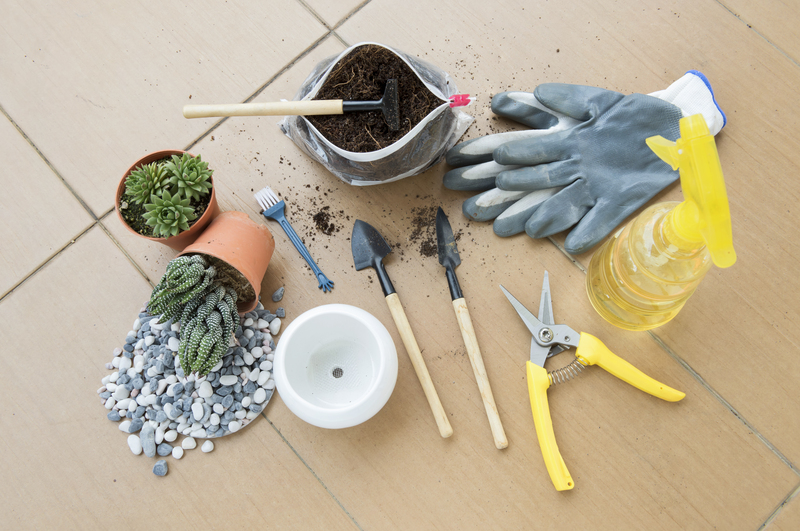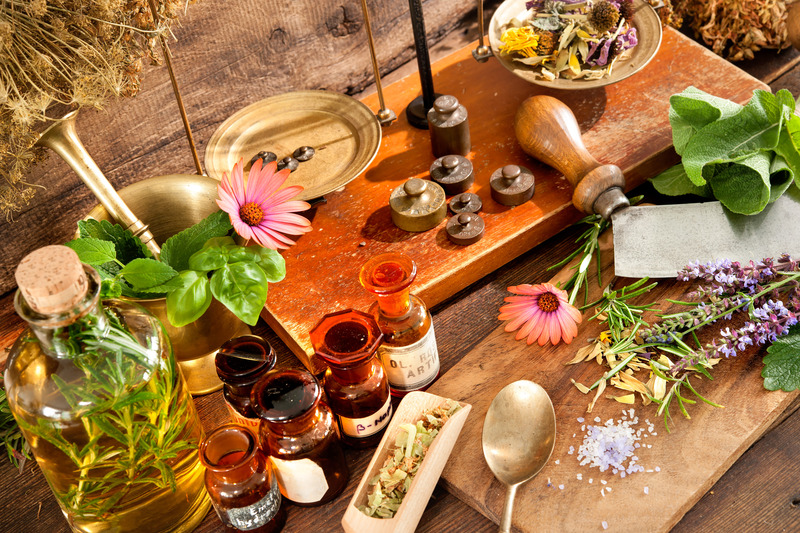Get Started in Gardening: 9 Essential Tips Every Beginner Should Know
Posted on 03/09/2025
Get Started in Gardening: 9 Essential Tips Every Beginner Should Know
Gardening isn't just a rewarding hobby - it's also an excellent way to enhance your outdoor space, boost your mental health, and even put fresh, homegrown produce on your table. If you're looking to get started in gardening, you're in the right place! Whether your dream is a lush flower bed, a thriving vegetable patch, or a simple windowsill herb garden, the journey begins with a few essential steps. In this comprehensive guide, we'll walk you through 9 vital tips every new gardener should know. So, grab your gloves and let's dig in!
Why Start Gardening?
Beyond the beautiful blooms and bountiful harvests, gardening offers a wealth of tangible benefits. Here are just a few reasons to consider beginning your gardening adventure:
- Mental Wellness: Gardening reduces stress, encourages mindfulness, and boosts mood.
- Physical Fitness: Digging, planting, and weeding all provide excellent low-impact exercise.
- Fresh Produce: Home-grown vegetables and herbs are tastier and often more nutritious than store-bought options.
- Environmental Impact: Plants help clean the air and support pollinators.
- Creativity: Designing a garden lets you express your personal style and preferences.
Ready to gain a green thumb? Here are our 9 essential gardening tips for beginners!

1. Choose the Right Location
One of the most important gardening tips for newcomers is to pick the ideal spot for your garden. Assess your available space - it could be a backyard, balcony, patio, or even a sunny windowsill.
Consider Sunlight
- Most edible plants and many flowers require at least 6-8 hours of direct sunlight daily.
- Observe your potential garden spots at different times to determine sun exposure.
- For shady yards, choose shade-tolerant varieties like ferns or hostas.
Tip: South-facing spaces typically receive the most sun.
2. Know Your Soil
Your soil type forms the foundation of successful beginner gardening. Not all soil is created equal. Sandy, clay, silt, or loam--each soil type has benefits and challenges.
Test Your Soil
- Texture test: Take a handful, moisten it, and squeeze. Does it crumble (sandy), form a sticky ball (clay), or feel smooth (silt)?
- pH Test: Home kits from garden centers help check acidity/alkalinity.
Modify your soil as needed: Add compost for fertility, sand for drainage in heavy soils, or peat moss for moisture retention.
3. Select Suitable Plants
For anyone new to gardening, choosing beginner-friendly plants is key to early success. Consider your local climate, the season, available sunlight, and how much maintenance you can commit to.
- Herbs: Basil, mint, chives, and parsley thrive in containers and are easy to grow.
- Vegetables: Tomatoes, lettuce, radishes, and beans are forgiving for novices.
- Flowers: Sunflowers, marigolds, pansies, and zinnias brighten spaces and are beginner-friendly.
Pro tip: Start with seedlings or small plants rather than seeds to make things easier.
4. Gather the Right Tools
Gardening equipment doesn't have to be elaborate, but having a few essential tools can make all the difference. Here's what you'll need to get started in gardening:
- Gloves: Protect your hands from thorns, splinters, and blisters.
- Trowel: Ideal for digging small holes, transplanting, and weeding.
- Pruners: Use these for trimming and shaping.
- Watering can or hose: Ensure your plants never go thirsty.
- Spade and rake: For digging, turning soil, and leveling beds.
Choose quality over quantity - reliable tools will last for years, saving you money and effort.
5. Start Small
It's tempting to dream big, but one of the best gardening tips for beginners is to start small. Managing a smaller space lets you learn, experiment, and avoid feeling overwhelmed.
- Begin with a small garden bed or a few containers.
- Grow only what you can care for - a few veggies or herbs are a perfect start.
- Expand as your knowledge, skills, and enthusiasm grow.
Remember: Even a tiny garden can yield big rewards!
6. Learn Proper Watering Techniques
Watering can be trickier than it seems! Too little, and plants wilt; too much, and roots can rot. Here's how to develop a careful watering routine for your new garden:
- Check the soil: Stick your finger an inch below the surface. If it feels dry, it's time to water.
- Water in the morning: This minimizes evaporation and prevents disease.
- Soak the roots deeply: Light, shallow watering leads to weak roots.
- Avoid leaves: Wet foliage invites pests and fungus, so water the base instead.
Consistent watering is key for vigorous growth!
7. Feed Your Plants
Just like us, plants need balanced nutrition to thrive. Good soil provides a base, but regular feeding helps your garden grow strong and healthy.
Use the Right Fertilizer
- Organic compost: Adds nutrients and micro-organisms to the soil.
- General-purpose fertilizers: Provide essential elements like nitrogen, phosphorus, and potassium.
- Follow instructions: More is not always better. Over-fertilizing can harm plants.
Tip: Mulch can help retain moisture and regulate soil temperature while improving fertility over time.
8. Tackle Weeds and Pests Early
Weeds compete for water, light, and nutrients; pests can quickly damage your crops. Here's how to protect your fledgling garden:
- Remove weeds by hand regularly, especially when young.
- Use mulch to suppress weed growth and enrich the soil.
- Inspect plants daily for holes, spots, or insects.
- Employ natural pest deterrents like neem oil, diatomaceous earth, or beneficial insects (ladybugs, lacewings).
Preventive care is far easier (and more effective) than treating large infestations.
9. Be Patient and Keep Learning
Gardening is a journey, not a race. Plants grow at their own pace, and mistakes are simply opportunities to learn. Track your garden's progress in a journal to remember what works and what doesn't - and don't forget to celebrate every bloom and harvest!
- Join local gardening clubs or forums for advice and inspiration.
- Read gardening books, watch YouTube tutorials, or attend workshops.
- Experiment each season - soon you'll find what truly works in your space.

Bonus: Quick Beginner Gardening FAQs
- When should I start planting? Spring is usually the best season, but it depends on your region and plant types. Check seed packets or plant labels for guidance.
- How do I deal with bad soil? Raised beds or containers with store-bought soil let you garden nearly anywhere.
- What if I have limited sunlight? Focus on shade-tolerant plants or invest in grow lights for indoors.
Conclusion: Your First Steps Toward a Thriving Garden
With these essential gardening tips for beginners, you're well-equipped to start your own lush, thriving garden. Remember, get started in gardening confidently, appreciate the process, and enjoy every milestone - from the first sprout to the final harvest. Every expert gardener was once a beginner!
Happy gardening and may your green thumb flourish!
Latest Posts
Effortless Orchid Care for Every Plant Enthusiast
The allure of growing plants through container gardening
Innovative Ideas for Building Enchanting Garden Seating Zones
Harmonize Your Garden with Peaceful Zen Landscaping Concepts

